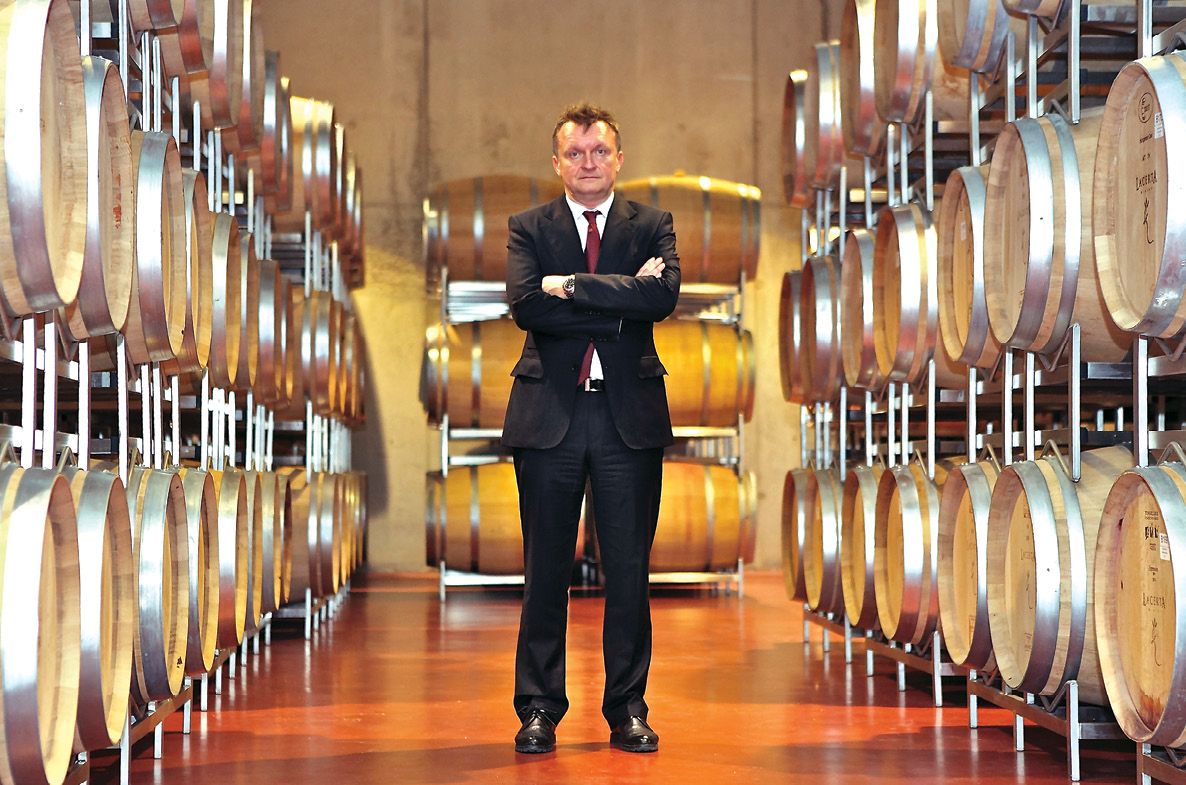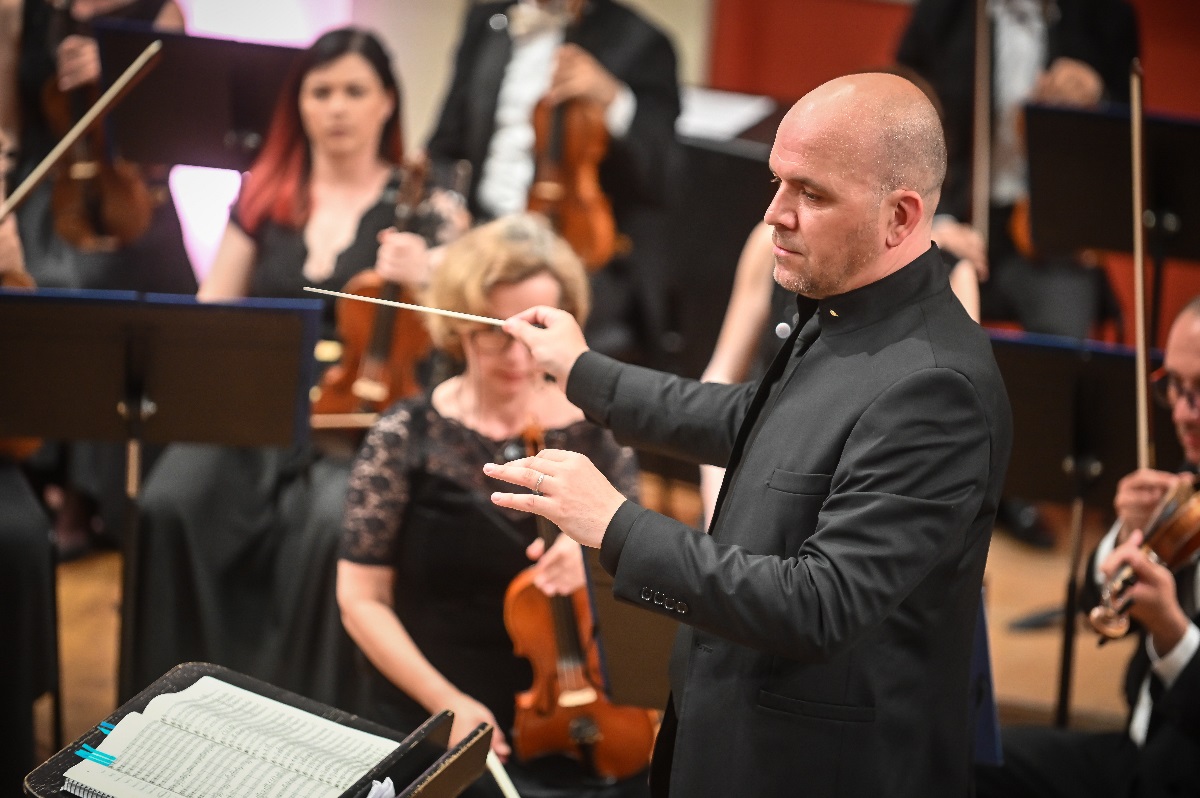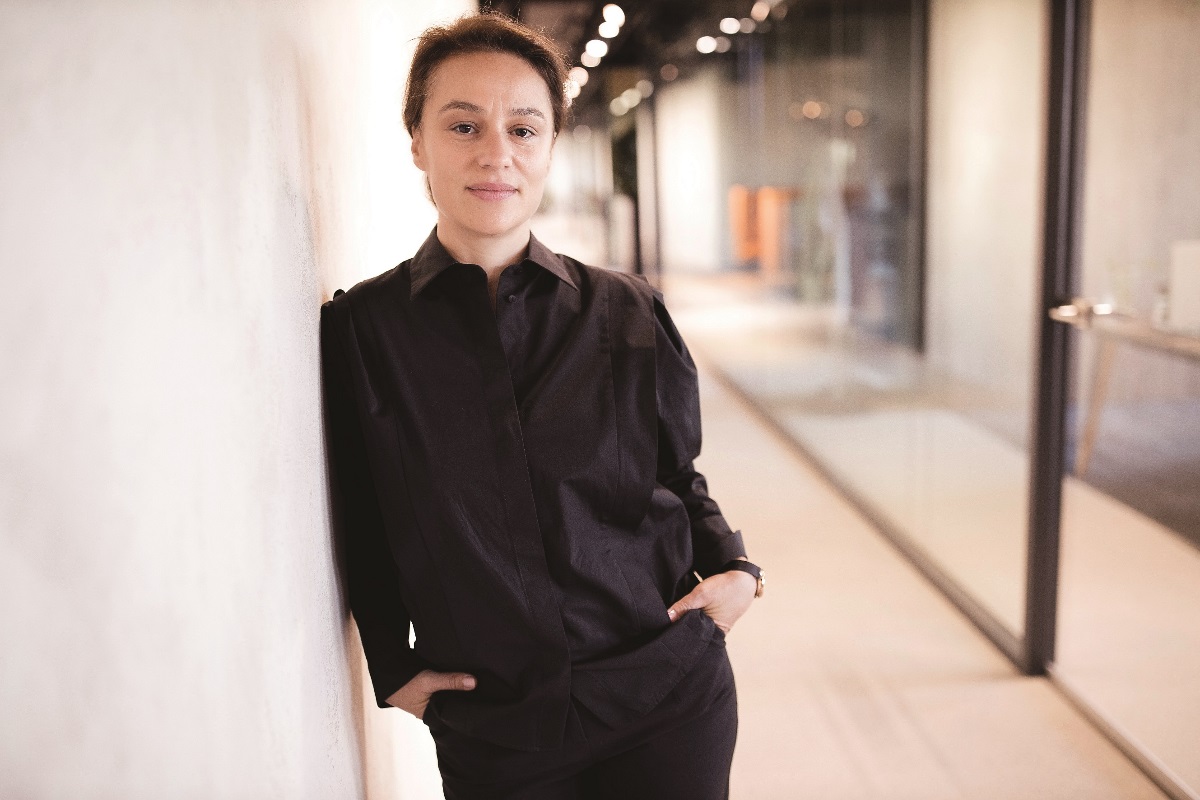
Walter Friedl, Managing Partner LacertA Winery: ”We want to become stronger on the Romanian market and hope to convince more and more Romanians of our wines”
You first arrived in Romania in the summer of 1989, as a commercial attaché of the Austrian Government for three years. How far has Romania evolved in capitalism and what were the reasons that led you to return and settle here permanently?
In July 1989, I came straight from a rich South American country to a country that looked a lot like North Korea today. A culture shock of the first order. From salsa, steaks, tropical fruits and happy people straight to a country that had to suffer massively under a dictator. The high potential and wealth of Romania was put into crazy projects. The population had to suffer unbelievably.
Then came the revolution and I was able to experience this extreme change live and on site.
That change impressed the world. Today Romania is a great country with many chances and opportunities and I can count myself lucky to have been so wonderfully received here.
In 1992 I was then transferred – together with my wife Larisa-Ioana – to Rio de Janeiro for 3 years and then to Jeddah, Saudi Arabia, where I was able to gain experience with Arabic countries as Austrian consul and commercial counselor for 7 years on the Red Sea. At that time, it was already clear to me that Romania would become a “country of the future” – my future – and so in 2002 I got the opportunity to take over the commercial department of the Austrian Embassy in Bucharest. That was the most exciting time of my life. Hundreds of great companies crowded into Romania. Membership of the European Union was just around the corner.
With more than two decades of experience in international trade diplomacy, in 2011 you chose the path of entrepreneurship and founded, together with a group of investors, the wine producer LacertA. What is the story of the LacertA business?
Working with the Romanian colleagues and with the investors and exporters was extremely challenging. Austria was the largest foreign investor in the country and Romania was increasingly becoming a “hot spot” in Europe. After 7 years of support and advice, I decided to try my luck myself and founded the “LacertA Winery” together with the great support of my wife Larisa, the brilliant winemaker Mihai Banita and financial partners from Austria.
There simply wasn’t enough “world-class wine” in this country. Businessmen from abroad and many local wine connoisseurs were ready for it.
The demand for premium wine was crucial. Everywhere in the restaurants, in the wine shops, in private life, the demand for delicacies from Romania increased. Instead of grapes from Chile, tomatoes from Holland, cheese from Germany…etc… products that were massively exported to Romania after the revolution, an attempt was made to use the great climatic conditions in Romania, the know-how of the farmers and the EU Funds to produce and offer regional top products “Made in Romania”. With great success. So, also in viticulture.
Wine popes from all over the world began to be interested in a “Feteasca Neagra” and found that the conditions in the wine regions – especially “Dealu Mare” – are simply ideal. The climate and the soil allow the production of top international wines such as Cabernet Sauvignon, Shiraz, Merlot, Chardonnay … etc…
Around a hundred years ago, Romanian wines were already among the top 5 world wines. Now it was time to restore the position of Romanian wines on the world market with state-of-the art technology. We have invested in a top modern wine cellar with help from EU and state funds. Sustainability and organic viticulture is our future.
LacertA Winery celebrated its 10th anniversary last year.
How did LacertA’s production and sales develop last year and what are your expectations and development plans for the near future?
The last 2 years were of course not easy for us in sales due to the pandemic. Almost no events, restaurants partially closed, private sales difficult, the winery was closed to visitors for months, almost no tourists and foreign business people in the country. That was a massive challenge for us.
However, production had to continue and in 2020 we were able to produce a great, very promising wine.
Now – at least that’s what it looks like – this crisis will soon come to an end. We expect a strong year 2022.
Exports to more than 20 countries are also getting off to a good start. LacertA wines are very popular in Japan, Korea, China, Canada, Scandinavia, Germany, Switzerland, Austria and now even in France (!). This quick success came unexpectedly and of course we are very happy.
When our wines are offered exclusively at the prestigious vintage car rally “Bernina Gran Turismo” in September in fashionable St. Moritz, when we win the gold medal for our Rosé in San Francisco, when at the Ginza in Tokyo in the delicatessen shops “LacertA Blanc de Noir“ is offered, then we believe that we are on the right track.
Above all, we want to become stronger on the Romanian market and hope to convince more and more Romanians of our wines. We have formed an association with other premium wineries in Dealu Mare, with which we want to promote our wine region more. At home and abroad. We invite wine lovers to visit us and convince themselves of the quality directly with us. Our winery is visited by thousands of wine lovers every year. A guided tour of the wine cellar and a tasting of our wines is possible 7 days a week.
How would you define the profile of the Romanian wine consumer and what is the potential of the local market? What opportunities does Romania offer in this sector and what are the main challenges faced by producers?
The Romanian wine consumer developed very quickly after the revolution from the classic sweet wine consumer to the connoisseur of dry premium wines. Many Romanians have been able to gain experience abroad – especially in Spain and Italy – and the quality of Romanian gastronomy has also played its part. Today we have top international restaurants all over the country. We can observe a development that suits us very well. Many Romanians are now proud of the locally produced products and ready to order them. This development can be observed internationally in classic wine countries. Who drinks French wine in Tuscany? How many Italian wines can you find in a wine shop in Spain? We hope – and we’re doing our part with wine tastings and lots of persuasion in restaurants across the country – that this trend will continue in Romania.
Do you really have to drink Tempranillo in Poiana Brasov? I love the Rioja wines – but on vacation in Spain.
You founded the Austrian Business Club Bucharest 20 years ago. What is the role of this association in the local business landscape?
Austrian companies recognized Romania’s great potential very early on and were already ready in the 1990s to take the step to Romania and invest here. We bring together the directors of these companies. The exchange of experiences is very important. More and more Romanians are taking on managerial roles in these companies. Most of these people have experience abroad and we are very happy about this development. Today more than 60% of the members are Romanians. We also invite representatives of other companies to our major annual events such as the “Winter Ball” and the “Sommerfest” and cooperate with the CEO Clubs Romania. This gives our members the opportunity to build up a great network of professionals.
Austria is one of the largest foreign investors in the Romanian economy, and the bilateral trade volume exceeded the 5-billion-euro threshold last year. What factors contribute to the growing interconnection of the two economies and the high interest of Austrian capital in the local market?
Austrian companies were able to establish contacts in neighboring countries to the east, such as Hungary, the Czech Republic, Slovakia and Slovenia, very soon after the fall of the Iron Curtain. Due to the common past – keyword Austro-Hungarian Monarchy – there were many Austrians who had their roots in Eastern Europe and were ready, without shyness or reservations, to take the immediate step towards the East. The logical consequence was that the next step towards Romania was made in the mid-1990s. With Romania’s membership of the European Union in 2007, this integration was greatly accelerated. Romania became a very important partner of Austria. To date, Austria is one of the 3 largest investors in Romania.
Interview by Ioan Dornescu
Share
Share















